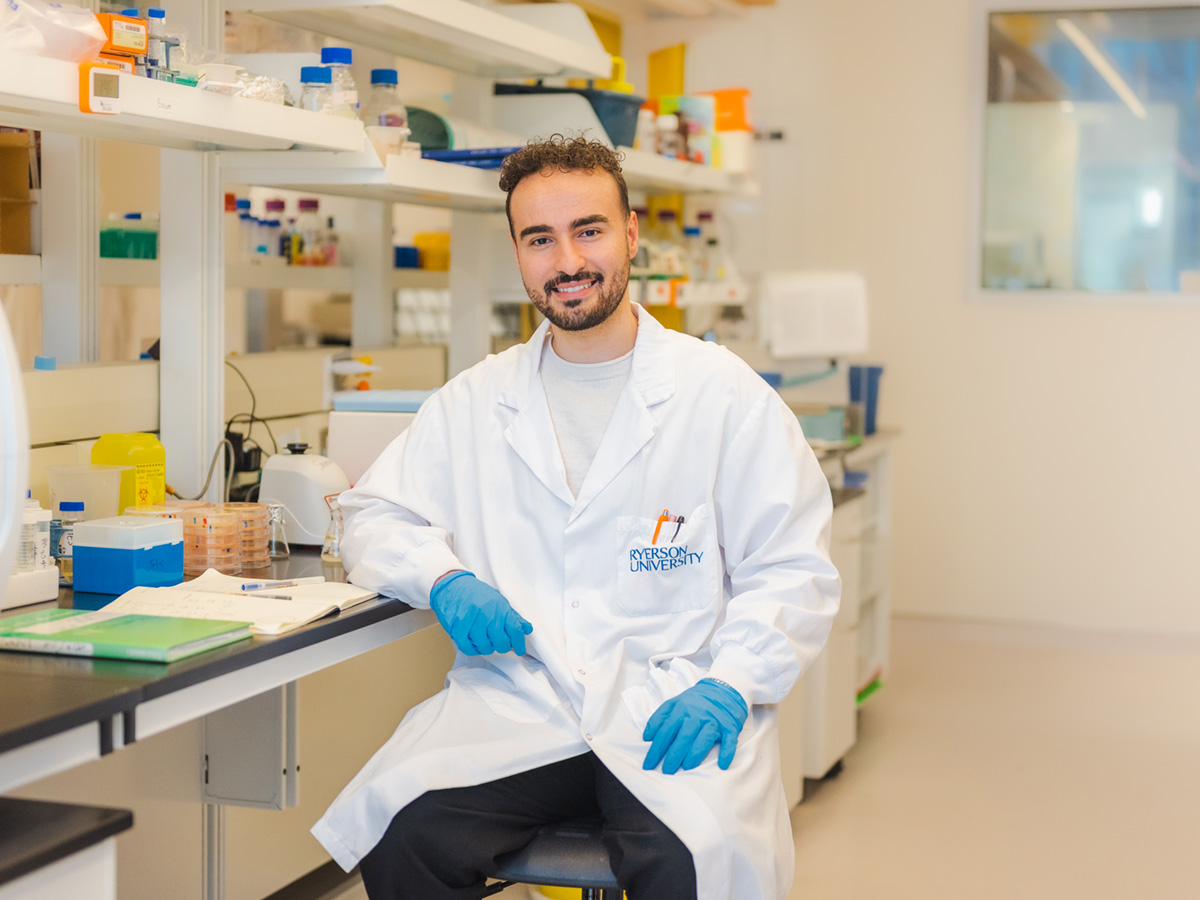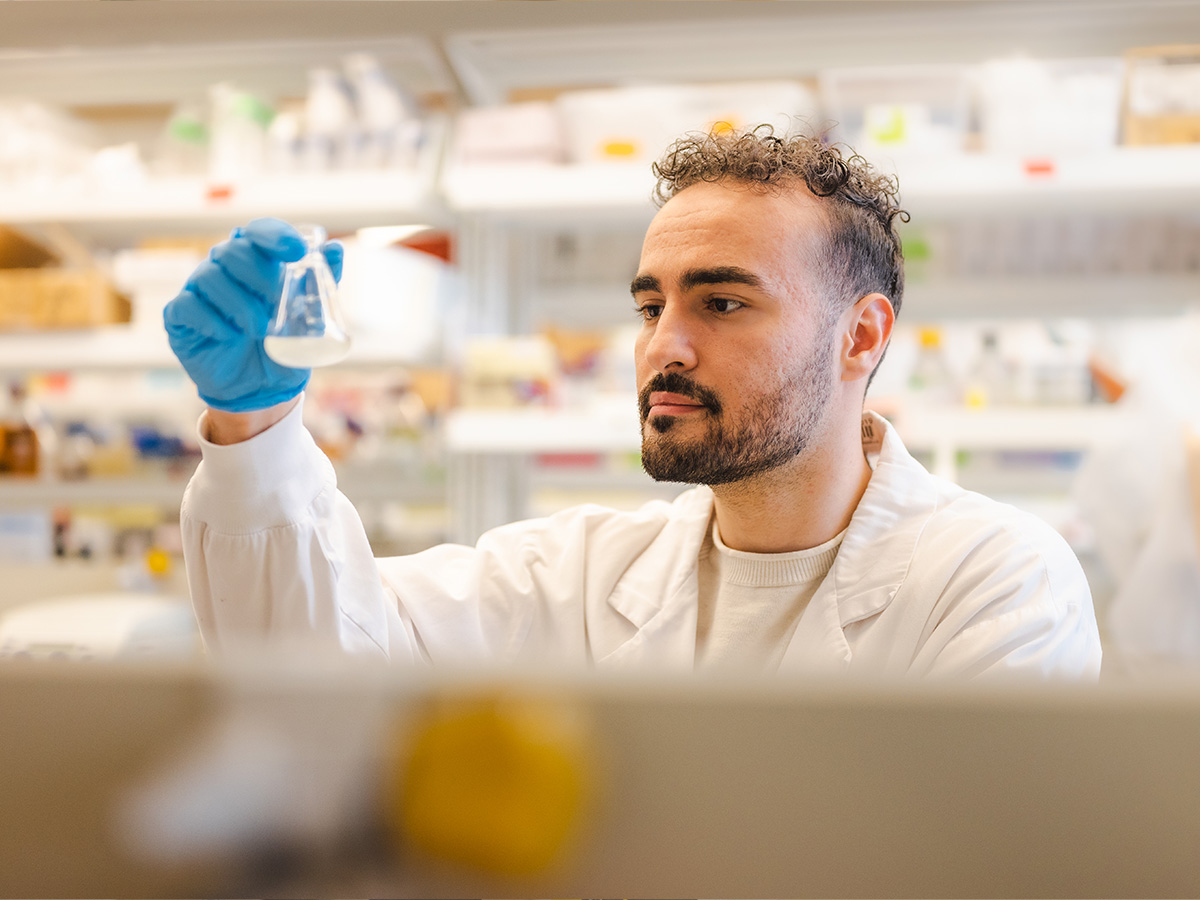Understanding cancer on a molecular level
Essam Karam is untangling the complex biological mechanisms that allow cancer cells to evade treatment

In the human body, when a cell receives signals from the cellular environment that it is damaged, it will either repair itself or self-destruct. Known as “cell cycle checkpoints,” these signals are critical to regulating protein function in cells.
Cancer cells, as we know, play by their own set of rules: they typically blow past these checkpoints and continue replicating as they wish, which is what causes disease. For Essam Karam, investigating the mechanisms that let cancer cells ignore such cues and continue multiplying is a fascinating challenge.
“It’s really like putting together a puzzle—when you see a trend, you can start to link two things together,” says Karam, who completed his Bachelor of Science in biology at TMU and is now completing a Master’s in molecular science. “Interpreting the results is the most interesting part of the work.”
Cell cycle checkpoints: When a cell in the human body receives signals from the cellular environment that it is damaged, it will either repair itself or self-destruct.
Performing research experiments on fission yeast—an ideal model organism because it produces several cellular processes that also occur in humans—Karam has studied the role of a specific protein in the development of pancreatic cancer and its implications for chemotherapeutics efficacy. He conducted this research and similar work at specialized facilities for the Faculty of Science at the MaRS Discovery District under the guidance of professor Sarah Sabatinos, who directs the graduate program in molecular science.

On top of his studies, Karam is helping biology undergraduate students develop their expertise. Last summer, when the COVID-19 pandemic was still hampering on-campus learning, he used his TMU Graduate Fellowship opportunity to help organize a virtual research practicum for 50 students, where they watched live footage of cells and analyzed their behaviour.
After graduating, Karam plans to pursue a PhD in biology, then explore opportunities to continue researching cancer, perhaps at a pharmaceutical company.
“The most important thing to me is wanting to feel like I’m contributing to this world in a positive way,” says Karam, who made the Dean’s List three times. “I can see the implications of my research, and it feels like what I'm doing matters.”